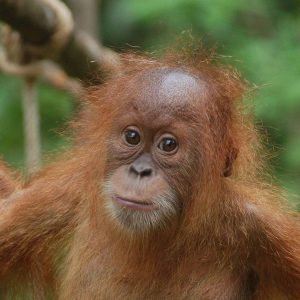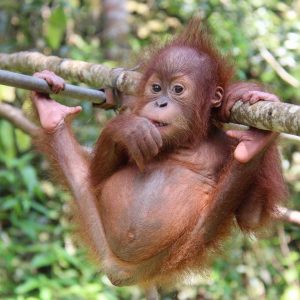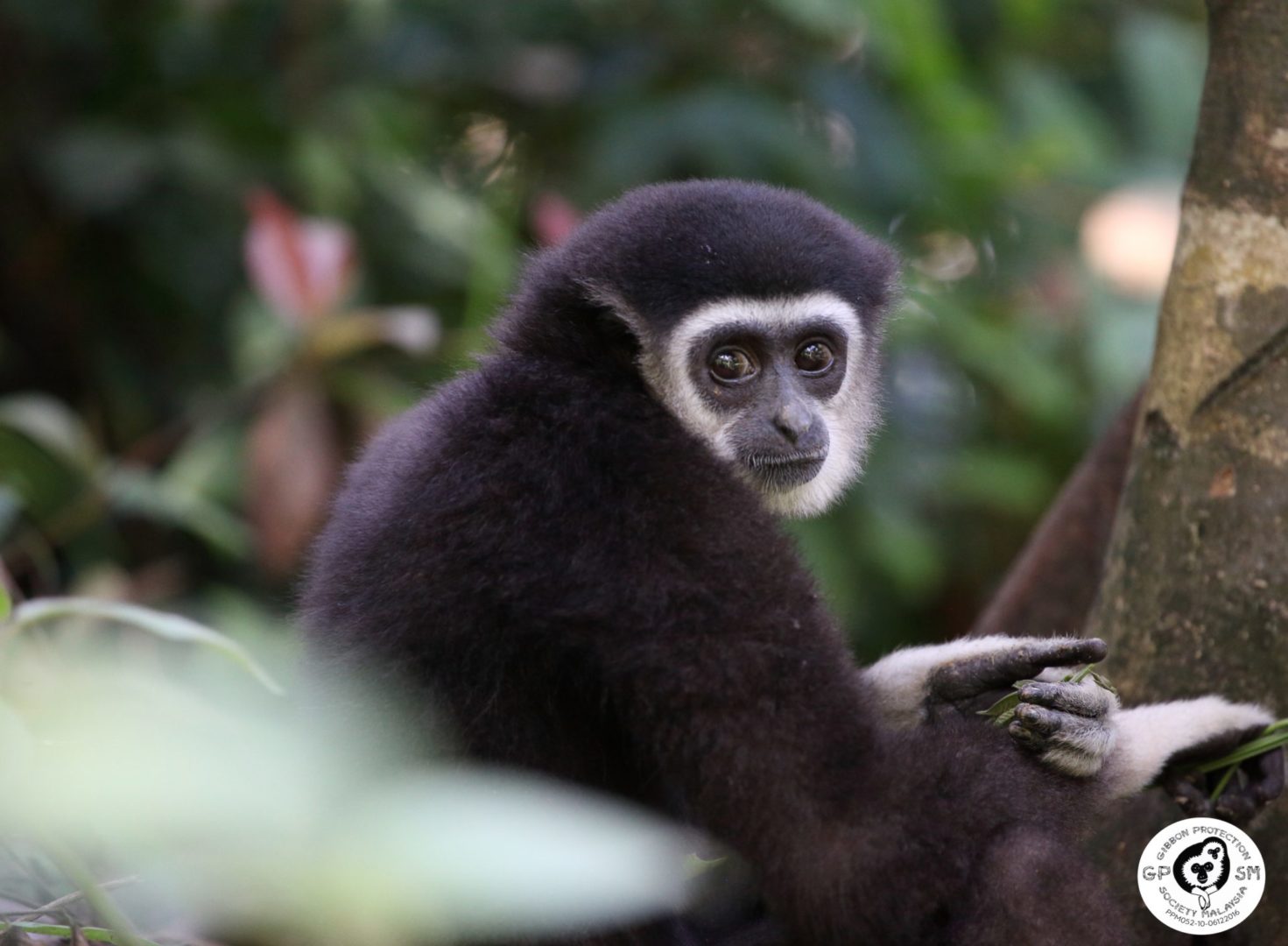In the heart of Malaysia's lush jungles, a silent struggle for survival is unfolding. The…

Inspiring animal rescue stories from Cikananga in West Java, Indonesia
3.
Inspiring animal rescue stories from Cikananga in West Java, Indonesia
One of the largest wildlife rescue centres in the world
Cikananga Wildlife Centre (Cikananga Foundation) in Java is one of the largest rescue centres of its type. This is directly related to the fact that Indonesia is one of the planet’s most biodiverse countries. As such, it also has one of the highest levels of illegal wildlife trafficking. At the turn of the century, the country developed at least 8 large rescue centres as part of its commitment to CITES. This stands for the Convention on International Trade in Endangered Species of Wild Fauna and Flora. It is an international agreement to protect endangered plants and animals. Specifically, it aims to ensure that international trade in wild animals and plants does not threaten their survival.

So, the centre plays a vital role in the fight against wildlife crime with many inspiring animal rescue stories over the years. The local wildlife departments are responsible for enforcing laws to protect animals from poaching and illegal trade. But this can only happen effectively when there are centres like Cikananga to receive the confiscated animals. So the centre crucially functions as a sanctuary for many different protected wildlife species. It provides high quality care and a home for rescued animals. If possible, it will rehabilitate and release animals back into the wild. Often, this is achieved with the help of international and local partners with expertise in wildlife release and breeding.
Since its beginning in 2002, the centre has welcomed more than 3,700 rescued animals. For sure, it is a key player in Indonesia’s Wildlife Protection programmes. Moreover, the centre continues to aim for the highest local and international standards of animal welfare and rehabilitation.
The story of
Femi and Rosie
Femi and Rosie are two beautiful orangutan girls who arrived at the Cikananga Wildlife Centre in 2016. Their story is typical of the inspiring animal rescue stories that happen as a result of the traumatic illegal wildlife trade in Indonesia.
The girls were captured and separated from their mother at a very young age. Poachers do this to traffick the animals and sell them as pets, normally in more populous areas such as Java. The island of Java has a population of over 140 million providing many wealthy potential buyers for exotic pets. This means that the apes are no longer near their original habitat in Sumatra. Crucially, they also lose the chance to learn natural survival skills.
So, these two young girls needed a lot of TLC from the animal keepers. Incredibly, Rosie had actually been found inside a postal parcel. So the young apes needed to recover mentally and physically from their painful experience. The staff at the centre, led by the volunteer coordinator Hanneke, made a real effort to spend time on teaching the girls natural skills such as climbing and foraging for food. Fortunately, the girls learnt quickly and became fit and agile, like wild apes. This meant that they were ready to be released back to their natural habitat. But more obstacles had to be overcome for this to happen
Because Cikananga is located on the densely populated island of Java, the centre acts as a vital transfer point for the relocation and release of wild animals. In the case of Femi and Rosie, the team were able to collaborate with a rehabilitation facility in Sumatra to organise the release of the two Sumatran apes. This is normally a lengthy process involving a lot of paperwork and logistical arrangements including land and air transport to another island. Moreover, it always requires the coordination of several release partners such as the Indonesian forestry department, JAAN Jakarta Animal Aid Network and , in this case, SOCP the Sumatran Orangutan Conservation Programme.This project seeks to establish new wild populations of these great apes in Sumatra. Crucially, the project accepts rescued orangutans for ‘jungle school’. In this way, the apes are prepared for a return to the wild in protected forest areas.
So, Femi and Rosie still had a long path ahead. First, it took about a year to get them transferred to the SOCP Orangutan Quarantine Centre which is outside Medan, North Sumatra. You can see their amazing journey, by land and air, in some of these images. The girls arrived back in their original home of Sumatra in October 2018, about 2 years after being confiscated.
In fact, it took another year, before the girls took another step toward their freedom. In 2019, they were welcomed by the Orangutan Reintroduction Center in Jambi Province. This is a partner project of SOCP and is managed by the Frankfurt Zoological Society. Here, they have released more than 150 orangutans into the wild since 2003. Femi and Rosie would stay in this semi-wild environment until they could be candidates for a full release after further rehabiltation.
Happily, there was a emotional reunion for the young apes in Sumatra. Hanneke from Cikananga, who had looked after the girls for two years, was able to make the long journey from Java to Jambi to check on their progress. When Hanneke arrived, she was welcomed by the team at Jambi and invited to join the afternoon feeding. Rosie shouted with joy when she saw Hanneke! Femi also recognised her and reached out her hand. Both the orangutans clearly remembered Hanneke after those two years. It was a very happy moment for all of them. Truly, Hanneke was lost for words during this experience. She was very glad to see that the girls were thriving in their new environment. They were healthy and doing well. Rosie, who was always the more sociable one, was already sharing her enclosure with three other young apes.

Hanneke was very thankful for the chance to see the girls again. She returned to Cikananaga with the good news about their imminent release. Finally, in September 2019, the confirmation arrived that the girls had been released into the forest in a semi-wild setting.
After a period of intensive rehabilitation and health checks, the girls were free again in the forest where they belong. Definitely, for the whole team at Cikananga, this release was a confirmation that all their hard work and dedication are worth it in the end. They are also thankful for all the collaborative organisations who make this possible.

Femi and Rosie were lucky to have benefitted from the long and complex rehabilitation process. But many other rescued animals do not have this chance. For them, the wildlife centre remains their home where they need lifelong care.
In short, the role of a centre such as Cikananga is crucial to the conservation of endangered species. Even though it is located in the most populous island in the world, it plays a vital part in rehoming the animals after confiscation. Plus the centre will try everything possible to transfer animals who are good candidates for release. The story of Femi and Rosie is one of many inspiring animal rescue stories from this centre. In reality, Cikananga does not get the type of media attention reserved for the famous ‘jungle schools’ in Borneo and Sumatra. However, their work for the animals is just as priceless and admirable. More such wildlife centres are urgently needed in Indonesia to continue this vital conservation work.
ARE YOU LOOKING FOR A JOB IN CONSERVATION?






